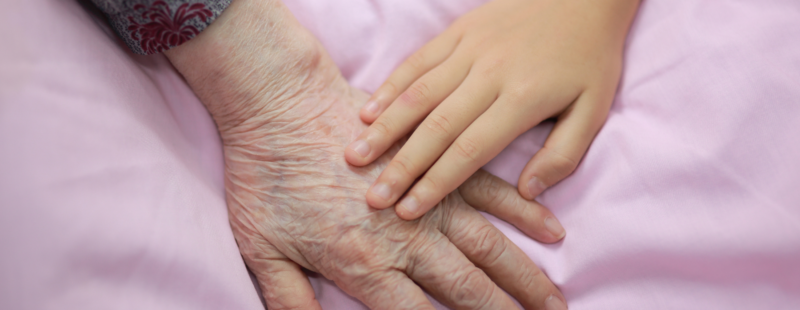Craig Harrison, Policy Manager for Marie Curie Northern Ireland, reflects on what we can do tackle loneliness and social isolation for people at the end of life.
Loneliness can become deeply entrenched
While loneliness has taken root in a lot of new places during the Coronavirus pandemic in the UK, for many people impacted by terminal illnesses and coming towards the end of life, the experience began a long time before March 2020. Older age, poor health, disability and low income – these are just some of the factors that put people at a heightened risk of experiencing loneliness. In isolation they are bad enough, but what if you fall into most, or all, of those categories simultaneously? This is the reality for many people living with terminal conditions like dementia, incurable cancer and motor neurone disease. In these cases, loneliness can become more deeply entrenched and, unfortunately, much harder to resolve.
About Marie Curie Northern Ireland
In Northern Ireland, Marie Curie witnesses the impact of loneliness among people at the end of life, and their loved ones, all the time. We see some dying people unable to maintain social connections and spend time outside of their home or care setting because of the physical and cognitive symptoms of their condition.
We see some friends and loved ones reluctant to visit because of fears of overburdening the person or an uncomfortableness at confronting their illness. We see end of life carers too exhausted to think about anything but getting through the day – and unable to afford a social life even if they could, due to the massive financial costs terminal illness often inflicts on a household.
And – when the doors close at night and all the healthcare professionals are gone – we see some people left feeling entirely alone because of the profound impact a terminal condition has on their loved one’s functioning, personality and behaviour.
“I’m used to being married… now I’m completely on my own. This person I’m living with is not the person I married. There is no affection. It’s like having a stranger in the house. How do you cope with that?” – John, who cares for his wife with dementia (Marie Curie, 2018)
The stark reality is that loneliness is robbing many dying people of the social connections and quality of life they want before the end comes. Marie Curie is determined to find the solutions needed to tackle this problem at its roots.
Our study with Queen’s University Belfast
We’ve funded a study with researchers in the School of Nursing and Midwifery at Queen’s University Belfast to learn more about the impact and, crucially, solutions to loneliness among terminally ill people and their carers in Northern Ireland. As a starting point, we surveyed Marie Curie’s community nurses, social workers and allied health professionals to hear their perspectives and experiences of loneliness among patients and their carers. We then arranged a series of focus groups to bring these experts together and explore the interventions they believe can help to address loneliness among people impacted by terminal illness.
Findings from this work are still being analysed and are due for publication next year. This will help build a picture of what works when it comes to identifying and addressing loneliness among people at one of the most vulnerable times of their lives.
In the time ahead, this evidence will be critical for influencing political change in Stormont. There is a growing recognition among policymakers in Northern Ireland that we need to do a lot more on the loneliness front, with NI standing today as the only place in the UK without a dedicated loneliness strategy. The Action Group on Loneliness Policy – chaired by the British Red Cross and involving the Campaign to End Loneliness, Marie Curie and other stakeholders – has lobbied intensively to change that.
When and if that strategy comes, it is imperative that people impacted by terminal illness are given due regard and attention. The impact of loneliness on their lives every day is simply too great not to.
For more information about the research project please contact Dr Tracey McConnell, Marie Curie Senior Research Fellow, School of Nursing and Midwifery, Queen’s University Belfast: t.mcconnell@qub.ac.uk.





No comments on this article yet. Please feel free to submit a comment below.
By submitting a comment you grant Campaign to End Loneliness a perpetual license to reproduce your words and name/web site in attribution. Inappropriate and irrelevant comments will be removed at an admin's discretion. Your email is used for verification purposes only, it will never be shared.